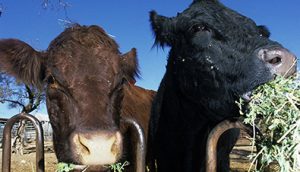Read the latest information on
Foot-and-mouth disease
 One of the most important biosecurity tools in a cattle producer’s arsenal has now been updated, with a new version of the national Cattle Health Declaration now available on the Farm Biosecurity website.
One of the most important biosecurity tools in a cattle producer’s arsenal has now been updated, with a new version of the national Cattle Health Declaration now available on the Farm Biosecurity website.
The Declaration is designed to capture important information about the health of a mob of cattle at the time they are sold, assisting the buyer in managing their introduction to the property and their integration into a new herd.
“The Declaration has sections on current vaccinations and treatment history,” explains Dr Rob Barwell, Senior Manager Biosecurity at Animal Health Australia.
“This lets you see a more complete picture of how the health of the cattle has been managed in their original herd, and how you should proceed with their health management into the future.”
The update has brought information about both Johne’s disease and pestivirus into line for both beef and dairy cattle, making the document easier to use regardless of your production system.
This follows the release of the revised Johne’s Disease Dairy Score (JDDS) in 2019, and the Johne’s Beef Assurance Score (J-BAS) in 2016, both of which are voluntary, self-assessed tools for determining and communicating Johne’s disease risk.
“This also means we’ll be retiring the Dairy BJD Assurance Declaration, as its function is now a part of the broader Cattle Health Declaration,” says Dr Barwell.
“Though the production systems are quite different, the more we can align health and biosecurity information for all breeds of cattle, the easier it will be for a producer to make use of a toolkit of resources.”
The Declaration is available on the Farm Biosecurity website, as part of the resources found under both Beef Cattle and Dairy Cattle.
It’s available as both a printable and fillable form, meaning producers can print as many copies as they need, or save a digital version with some of their key information already filled in.
“While the Cattle Health Declaration is a voluntary document, we highly recommend you request one whenever you buy cattle, and provide one when selling them,” says Dr Barwell.
“To that end we’ve made it as easy as possible to access, to fill in and to hand over when the sale or transfer is completed.”
Find out more at Farm Biosecurity’s Declarations page.